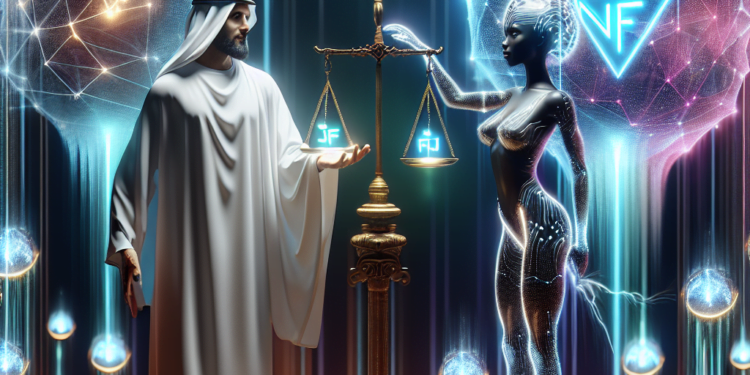The realm of digital assets has recently witnessed the emergence of a new creature – the Non-Fungible Token (NFT). These seemingly magical tokens have the potential to revolutionize traditional sectors like art, real estate, and gaming. They have also garnered a substantial amount of attention in the media, with celebrities and public figures throwing their weight behind them. But what exactly are NFTs, and are they here to stay?
Non-Fungible Tokens (NFTs) – An Overview
Non-Fungible Tokens, or NFTs, are a type of cryptographic token on a blockchain that represent a unique item or piece of content. Unlike cryptocurrencies such as Bitcoin or Ethereum that are fungible (i.e., interchangeable), NFTs have a unique value and cannot be exchanged on a like-for-like basis. This is akin to owning a unique piece of art.
The key feature of an NFT is its ability to tokenize things like art, collectibles, even real estate. It’s built using the same kind of programming as cryptocurrency, like Bitcoin or Ethereum, but that’s where the similarity ends. Each NFT is unique and they’re stored on the blockchain, which guarantees that your NFT is one-of-a-kind, as it can be traced back to the original issuer.
The Digital Asset Revolution
The proliferation of NFTs has been labeled as a digital asset revolution by many. There are several reasons which support this claim. The first one is Individual Ownership rights. On purchasing an NFT, the buyer gets a digital certificate of ownership which is tamper-resistant. This ensures safety and authenticity of every purchase and transaction.
Secondly, NFTs have democratized various sectors like art and real estate. Artists can directly sell their art to the consumers, devoid of any middlemen. This has provided them with increase in revenue and also recognition.
Also, they bring a paradigm shift in the world of gaming. Have you ever felt disappointed when your gaming account was banned, and you lost hundreds of hours worth of progress and collectibles? NFTs allow gamers to truly own their in-game items, preventing such misfortunes.
A Passing Trend?
While some hail NFTs as revolutionary, others remain skeptical and dismiss them as a passing trend. This skepticism primarily arises due to the novelty of the NFT space.
NFTs are still a relatively new concept. Despite the interest and hype, there are several kinks to be ironed out before it can become a seamless, widespread practice. There remains a lack of regulation and standardization across the space, resulting in various potential risks including fraud.
Moreover, the environmental impact of NFTs is a significant potentially negative factor. The creation and transaction of NFTs require a large amount of energy, contributing to carbon footprint.
Conclusion
NFTs are surely an exciting development in the blockchain space. They provide countless opportunities for the digitalization and democratization of various sectors. Yet, they are not without drawbacks. But like any technology, they require time and effort to mature and address the challenges it faces.
Whether a digital asset revolution or a passing trend, it’s clear NFTs have made a significant impact already. It’s still just the purpose they serve and the value people assign to them that will determine the longevity of NFTs.
To stay abreast with the latest developments in the NFT space, keep an eye on DeFi Daily News.
Frequently Asked Questions (FAQs)
What is an NFT?
Non-Fungible Tokens, or NFTs, are a type of cryptographic token on a blockchain that represent a unique item or piece of content.
What makes NFTs unique?
Unlike traditional cryptocurrencies, NFTs cannot be exchanged on a like-for-like basis. Each NFT has a unique value that can be traced back to its original issuer.
What are some applications of NFTs?
NFTs have found applicability in sectors like art, real estate, and gaming, among others.
What are the challenges faced by NFTs?
Lack of regulation and standardization, potential for fraud, and environmental impact are some of the challenges faced by NFTs.
What is the future of NFTs?
While the future of NFTs is uncertain, the value and applications they provide will play a pivotal role in their longevity.


















